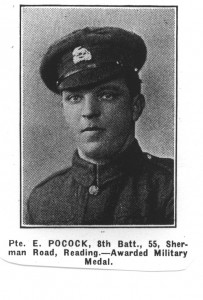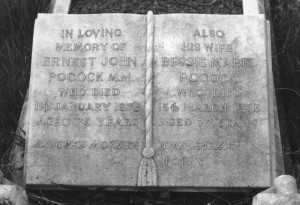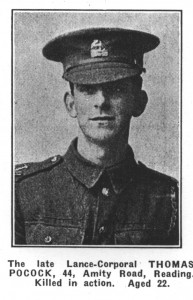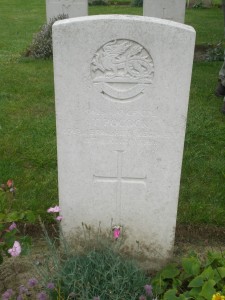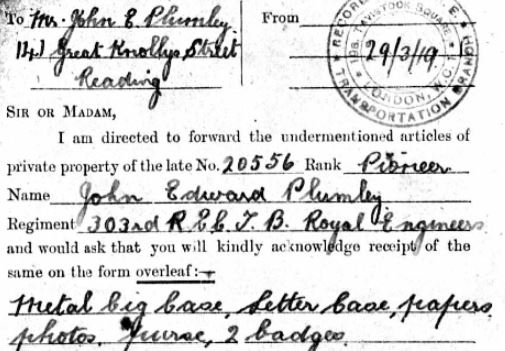John Edward Plumley
Pioneer WR/20556
103rd Road Construction Company
Royal Engineers.
Division 72
John Edward Plumley was the son of Mr John Edward and Mrs Mary Anne Plumley, of 141, Great Knollys Street, Reading. He is commemorated on the family grave. Number 17820. The Berkshire Family History Society classification is 72C15.
The 1911 census indicates that he was a tin plate worker. (It is possible that he worked for Huntley, Bourne and Stevens the biscuit tin manufacturers). His service records indicate that when he attested his medical classification was given as B2, it is believed that he was had a hearing deficiency. The tragedy for the parents, brothers and sisters of John Plumley was that the war had come to an end John had survived, after serving 18 months in France, only to die six days later on the 17th November 1918 of bronchio pneumonia , contracted as a result of active service. His personal effects were later sent to his family.
He was aged 28. The following poem accompanied the notification of death.
Our home is filled with sorrow
Our aching hearts are sad,
For the war has done its crucial part
And robbed us of our lad.
Do not ask if we miss him,
While we toil in pleasure dim;
No morning breaks or night returns
But what we think of him.
John Plumley is buried in Don Communal Cemetery, Annoeullin, Nord, France. Location I.B.26.
Don is a town 12 kilometres south-west of Lille. Annoeullin was held by the Germans from early in the war until shortly before the Armistice. John Plumley will have been treated in one of two Casualty Clearing Stations, Number 15 came to Don on the 25th October 1918 and remained until January 1919, Number 32 came at the end of November and left at the end of December 1918. Soldiers from both hospitals were buried in the Communal Cemetery. Later bodies were brought in from neighbouring fields.
